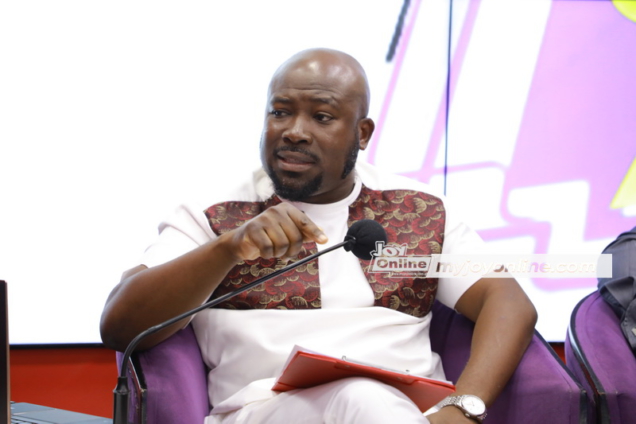A convener of the Ghana Individual Bondholders Forum, Senyo Hosi, says the government's inclusion of individual bondholders in the domestic debt restructuring programme has the potential to land the country in an even worse economic crisis.
According to him, the debt exchange programme has the potential to crash the faith of individuals in government's financial instruments like bonds and treasury bills.
A phenomenon, he established, could lead to a direr economic crisis as the country is largely run on the funds of individuals and not just companies.
“Every economy has households and by that extent, we are talking about individuals as the primary source of loanable funds. It’s not the firms, it’s not government. Firms and governments actually take money to run the wheels of the economy and households actually provide money to the economy."
"So when you crash the confidence of households or individuals in investing in the economy, you are actually going to be transforming this crisis into a very big economic crisis,” Mr Hosi said on JoyNews’ Newsfile on Saturday.
He explained that it would be best if government explores the recommendations of the technical committee rather than take a decision which might cause people to lose trust in the financial system.
"What is even more critical is the savings and investment culture in the country. For every economy to really thrive it really needs savings to grow,” he said.
Senyo Hosi noted that while he understands the need for the debt restructuring exercise, its effect on households and livelihoods is too grave to be ignored.
“[The debt restructuring exercise] is one of the options that we have available and achieving the DDE (Domestic Debt Exchange) will also definitely help us attain the sustainability that is required and help trigger the reforms or the transformation of the economy."
"So conceptually we are not opposed to the DDE in principle. What we have argued is that to individuals, it is going to be economically catastrophic,” he explained.
Mr Hosi added that, unlike financial institutions which had structures to fall back on, individuals did not have any.
"So there is a financial stability fund, there are forbearances that have been granted them by the central bank; unfortunately, there is a reduction in their capital adequacy ratio, their cash reserve requirement all these things help them recover."
"But for individuals, there is no option like that. Your only option, your only recovery is to hit the floor really hard and pray you survive,” he added.
Latest Stories
-
MultiChoice Ghana partners with Ghana Hotels Association to elevate guest entertainment
1 second -
Bawumia’s music streaming app or Mahama’s pay-per-view TV channel?
5 mins -
Karpowership Ghana empowers 40 Takoradi Technical University students with scholarship
7 mins -
We expect significant reduction in prices of petroleum products in coming weeks – CEO AOMC
20 mins -
Betway Africa offers once-in-a-lifetime ‘Play-on-the-Pitch’ experience at Emirates Stadium
29 mins -
I coined the term ‘hype man’ in Ghana – Merqury Quaye
35 mins -
Vasseur questions ‘strange momentum’ of Formula One race director change
57 mins -
“I am disappointed in Kojo Manuel” – Merqury Quaye on “no tie” comment
57 mins -
Nana Kwame Bediako; The beacon of unity
60 mins -
Western Region: NDC youth wing embarks on phase 2 of ‘retail campaign’
1 hour -
Action Chapel International holds annual Impact Convention in November
1 hour -
Jana Foundation urges young women to take up leadership roles
2 hours -
All set for Joy FM Prayer Summit for Peace 2024
2 hours -
Managing Prediabetes with the Help of a Dietitian
2 hours -
Joy FM listeners criticise Achiase Commanding Officer’s election comment
2 hours

